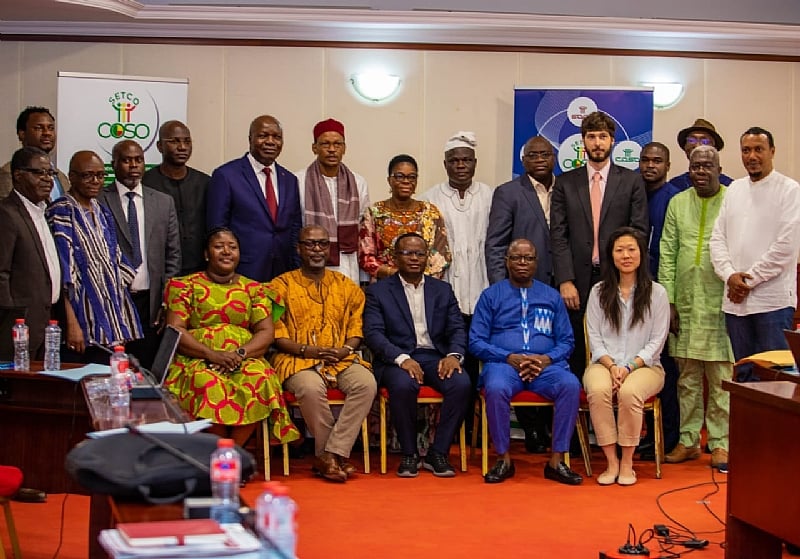The Minister for Local Government, Chieftaincy and Religious Affairs, Mr. Ahmed Ibrahim, has emphasized the urgent need for increased funding to bolster community development initiatives, particularly in vulnerable regions. Speaking at the Gulf of Guinea Social Cohesion Project (SOCO) Regional Coordination Meeting in Cotonou, Benin, the Minister stressed that Ghana must move beyond a narrow focus on infrastructure development to address the broader socio-economic challenges that fuel instability and hinder progress. He argued that sustainable development requires a holistic approach that prioritizes community participation and empowerment, ensuring that development projects have a lasting impact and that local populations are actively involved in shaping their own futures. The Minister’s call for expanded funding reflects a growing recognition that addressing complex development challenges requires sustained investment in human capital, social programs, and community resilience. His remarks underscore the importance of moving beyond short-term, project-based interventions towards a more comprehensive and participatory approach to development.
Central to the Minister’s appeal for increased funding is the need to prioritize youth empowerment and social cohesion. He highlighted the crucial role of job creation, skills training, and youth engagement programs in fostering social inclusion and preventing vulnerability to crime and radicalization. Without access to meaningful employment and positive opportunities for participation, young people are at increased risk of marginalization and may become more susceptible to negative influences. By investing in programs that equip young people with the skills and opportunities they need to succeed, societies can build stronger, more resilient communities. The Minister’s emphasis on youth empowerment reflects a growing understanding of the demographic dividend and the potential of a young, dynamic population to drive economic growth and social progress. Investing in youth is not simply a social imperative; it is a strategic investment in the future.
Furthermore, Mr. Ibrahim emphasized the importance of livelihood activities and skills training, particularly for vulnerable groups like women. These initiatives, he argued, are fundamental to building social cohesion and empowering communities to participate in economic activities and support their families. By providing individuals with the tools and resources they need to generate income and improve their livelihoods, development programs can contribute to greater economic security and reduce vulnerability to poverty and hardship. This emphasis on economic empowerment reflects a shift away from traditional aid models towards a more sustainable approach that focuses on building self-reliance and fostering local ownership of development initiatives. Empowering vulnerable groups, such as women, is not only a matter of social justice but also a key driver of economic growth and poverty reduction.
The Minister’s call for expanded funding aligns with the broader objectives of the SOCO project, which aims to address a range of complex challenges facing the Gulf of Guinea region, including climate change, violent extremism, and cross-border conflicts. These interconnected challenges pose significant threats to regional stability and development, and require a coordinated and comprehensive response. The SOCO project recognizes that building social cohesion and resilience is essential to mitigating these risks and fostering sustainable development. By investing in community-based initiatives that address the root causes of instability, the project seeks to create a more secure and prosperous future for the region.
The Regional Coordination Meeting in Cotonou provided a platform for ministers, prefects, governors, and World Bank representatives to discuss strategies for promoting regional development and social cohesion. The meeting underscored the importance of collaboration and partnership in addressing the complex challenges facing the Gulf of Guinea region. By bringing together stakeholders from across the region, the meeting facilitated the sharing of best practices and the development of coordinated strategies. The presence of World Bank representatives highlighted the potential for international partnerships to support regional development efforts. The meeting served as a valuable opportunity to build consensus and momentum around the need for increased investment in social cohesion and community development.
The Ghanaian government’s plan to engage the World Bank to secure additional funding for the SOCO project reflects a commitment to scaling up successful initiatives and expanding their reach to other vulnerable communities. By leveraging the expertise and resources of the World Bank, the government aims to strengthen the project’s impact and ensure its long-term sustainability. The focus on expanding the project to other vulnerable communities demonstrates a recognition that the challenges facing the Gulf of Guinea region require a regional approach. By working together, countries in the region can share lessons learned and develop more effective strategies for promoting peace, security, and development. The Minister’s remarks at the Regional Coordination Meeting underscore the importance of sustained investment in community development initiatives as a critical component of building a more resilient and prosperous future for the Gulf of Guinea region.


